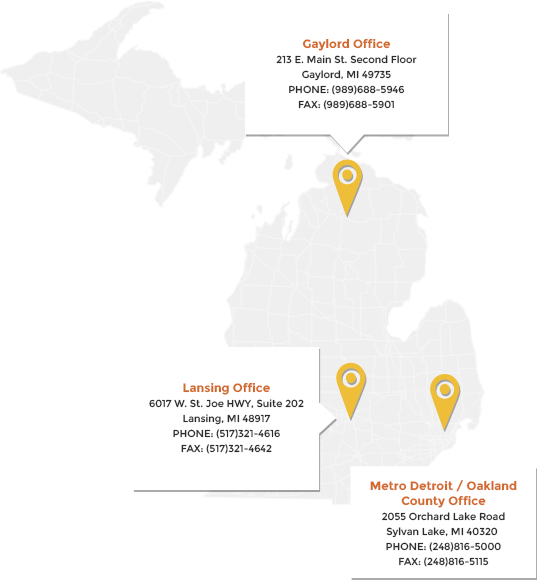Michigan
Liquor Code Violation Attorneys
Michigan Liquor Code Violations
The regulations of the Michigan Liquor Control Code are strictly enforced. Make a mistake and your establishment could be shut down. When the stakes are this high, you need strong and effective legal representation.
Carlin Edwards Brown PLLC represents more licensees in the state of Michigan than any other law firm. We have successfully represented hundreds of clients in liquor code violation cases over the years — and we will vigorously defend your liquor license.
Call 248-816-5000, 517-321-4616 or 989-688-5946, or contact us online for a case evaluation.
Building a Successful License Defense Effort
Our firm has experience in all types of liquor license violation cases, including:
- Sale to minors
- Sale to intoxicated persons
- Serving after hours
- Unauthorized transfer of a liquor license
- And other alleged liquor code violations
We have worked with numerous assistant attorneys general over the years in negotiating favorable settlements when it is in our client’s best interest. We also have the experience to fully contest Michigan Liquor Control Commission (MLCC) violations when necessary.
Because of our strategic office locations in Lansing, Metro Detroit and Gaylord, we are able to provide nearly statewide coverage for hearings in Lansing, Farmington, Jackson, Kalamazoo, Ann Arbor, Grand Rapids, Cadillac, Traverse City, Flint, Saginaw, Petoskey, Sterling Heights and other locations where the MLCC schedules hearings. We have developed relationships with other counsel for hearings that may be scheduled for Michigan’s Upper Peninsula.
Unauthorized Transfers of Liquor Licenses
One of the most common liquor code violations is the unauthorized transfer of a liquor license. Many people who are selling or buying an establishment view the deal solely as a real estate transaction. The MLCC, however, views the transfer of a liquor license as completely separate from the sale of a bar or restaurant property.
We Are on Your Side
At Carlin Edwards Brown PLLC, we understand the importance of your legal matter. Our firm will act quickly to defend your license and livelihood. We have handled several hundred MLCC violation hearings over the years, so put our experience to work for you.
Contact Michigan’s Premier Liquor Licensing Attorneys
Call (248)816-5000 or fill out our contact form to speak with the hospitality law attorneys at Carlin Edwards Brown PLLC. We have helped hundreds of on-premise hospitality providers and off-premise establishments obtain liquor licenses. We have also represented several hundred establishments accused of liquor code violations before the Michigan Liquor Control Commission.





